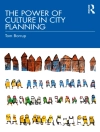This book discusses the the integration between tourism and heritage and strategies to achieve sustainability in the tourism sector. The book adds innovative insights into the development of new practices solving challenges of sustainability in this sector and promoting responsible tourism. The book in hands also offers solutions and discusses sustainable tourism environment, social and economic impacts of tourism, and policies and mechanisms for heritage preservation. The primary audience of this book will be scholars, planners, architects, and stakeholders interested in sustainable tourism. This book is a culmination of selected research papers from IEREK’s third edition of the International Conference on Cultural Sustainable Tourism (CST) held online in collaboration with the University of Maya, Portugal (2021).
Jadual kandungan
Re-looking through Ian Mc Harg’s perspective on landscape planning: Watershed Management of cultural landscapes of Orchha, Madhya Pradesh, India.- Heritage Tourism: The Case Study of I Benedettini (BARI).- From the paradise of Beit Shean Valley to the contested landscape of the Valley of Springs; water amenities, environmental justice and sustainable development.- Religious tourism during the Covid-19 period: the case of Our Lady of Agony Festival, Viana do Castelo, Portugal.- Visitors’ perception of tourist attractions in a green protected area: The case study of the Peneda-Gerês National Park.- Solidarity Tourism in a Multicultural Society in Southern Italy.- Tourism impacts on heritage sites in Japan: from government’s view to local people’s awareness.- Exploring the unlimited and unexplored Rural Tourism in Meghalaya, North East India.- Effects of market intelligence generation, online reviews, and management response on the business performance of rural accommodation establishments in France.- The Fortress of Santa Catarina de Ribamar (Portimão) as a proposal for Good Practices of Military Heritage Preservation.- Sustainable tourism in natural territories that have suffered from catastrophes: the perception of public and private stakeholders of the Alva Great Route.
Mengenai Pengarang
Dr Ante Mandić is an assistant professor of sustainable tourism at the Department of tourism and economy, Faculty of economics, business and tourism, University of Split, Croatia. He is also an affiliated faculty at the Human Dimensions of Natural Resources Department, Warner College of Natural Resources, Colorado State University. He serves as a manager of Smart Cul Tour Living Lab and an Associate Editor of the Journal of Ecotourism (Routledge, Taylor and Francis group). He is a member of the Executive Committee and coordinator of Knowledge development at the International Union for Conservation of Nature – World Commission for Protected Areas TAPAS.
His teaching predominately focuses on sustainable tourism development. In his research, he pays attention to heritage destinations, particularly protected and conserved natural areas. He has published a number of academic papers in his field in respectful international journals as well as book chapters. He recently published a book, titled ‘Mediterranean Protected Areas: Challenges and Solutions’, with Springer Nature, and is currently, co-editing ‘The Routledge Handbook of Nature-Based Tourism Development’ (Routledge) expected to be published in 2022. Dr Mandić has extensive experience working as a researcher or educator on international projects founded by INTERREG MEDITERRANEAN (Shape Tourism; Blu Tour System; Co-Evolve; DESTIMED (educator)) and HORIZON 2020 program (Smart Cul Tour).
Rui Alexandre Castanho
Rui Alexandre Castanho holds an International Ph.D. on Sustainable Planning in Borderlands. Nowadays, he is a professor at the WSB University, Poland, and a visitor professor at the University of Johannesburg, South Africa. Besides, he is a post-doc researcher on the GREAT Project, University of Azores, Ponta Delgada, Portugal. Furthermore, he collaborates with the ECIDES Research Group – University International of La Rioja (UNIR), Spain; VALORIZA – Research Centre for the Enhancement of Endogenous Resources, Polytechnic Institute of Portalegre (IPP), Portugal; CITUR – Madeira – Centre for Tourism Research, Development and Innovation, Madeira, Portugal; and AQUAGEO Research Group – University of Campinas (UNICAMP), Brazil. Moreover, he has graduated in Green Spaces Engineering and Agricultural Engineering and holds a Master’s Degree in Planning, Audit, and Control in Urban Green Spaces.
Uglješa Stankov
Uglješa Stankov is a full professor at the Department of Geography, Tourism and Hotel Management, Faculty of Sciences, University of Novi Sad. His main research areas are the strategic role of information technology in designing services and co-creating experiences.
Due to the growing negative impact that inadequate use of information technology has on the digital well-being of consumers, the focus of his recentresearch is on the “calm” design of interactive systems in service and leisure industries, as well as on technology-assisted mindfulness. Uglješa collaborates frequently with scholars and professional groups from around the world and is now involved in several international projects. He has over 150 scientific publications and four books to his credit. He has recently joined the team of the European Capital of Culture—Novi Sad 2022 as the main internal evaluator.












